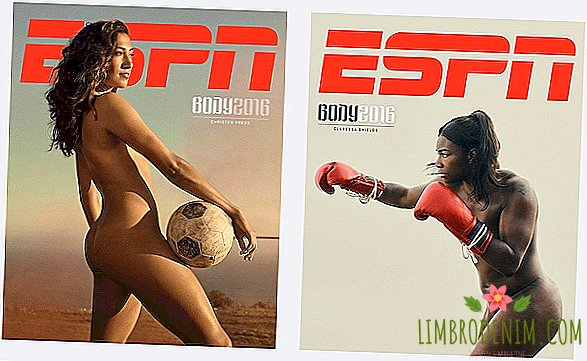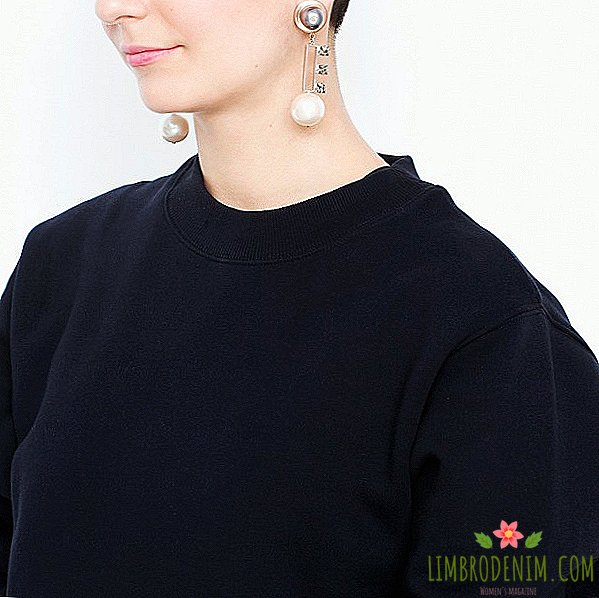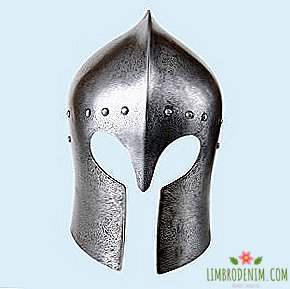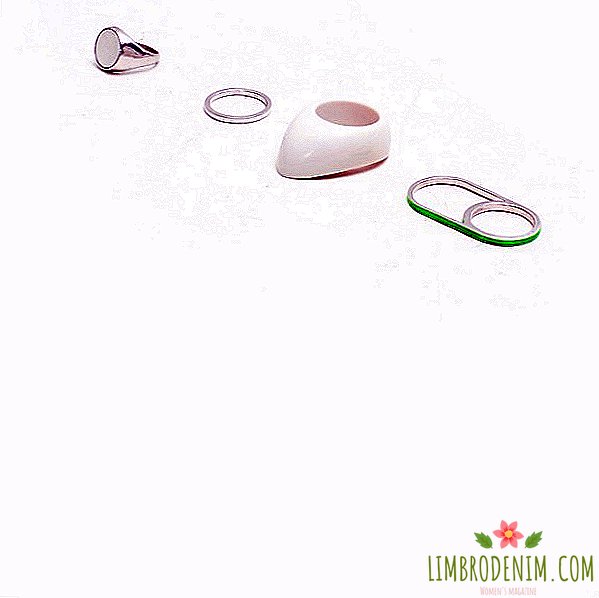Olympiad 2016: Isn't it time to get rid of sexism in sports reviews
"To make it easier for you to decide which broadcasts should not be missed in no case, we will introduce you to the sexiest athletes from different countries. Even if their sporting achievements do not hit the world, it’s still a pleasure to look at these girls, ”reads the text on Maxim magazine’s website, which was edited for the Summer Olympics by the heading“ The Sexiest Sportswomen. ”On the Championship website, you can find , "The Beauty of the Day" - a selection of photos of athletes, and on Sports.ru, one of the most popular Russian-language sports resources, is the blog "Girl of the Day" and the test "Guess the sport of the girl's poppy."

The discussion about sexism and discrimination in sports is not the first year, but during the Olympics in Rio, it entered a new round. Although women were allowed to participate in the Olympics back in 1900, and in all sports that are included in the program of the Olympic Games, women's competitions must also be held now, many sports are still considered the traditionally "men's" sphere. Sports broadcasts and reviews continue to rely on a male audience (remember how many times during the breaks of the broadcasts of matches you can see advertising means to improve potency) and build on the old canons. But the Olympics broadcasts attract the attention of a wide audience, including those who are indifferent to sports during the rest of the time - and are increasingly causing waves of indignation. The situation in the world is changing, and the usual manner of commenting on sports matches in 2016 seems sexist and inappropriate and raises more questions: The Guardian publishes a guide on how to comment on women's competitions and not look like an archaic asshole, but based on comments in sports and media make up sexist bingo - a game in which we all lose.
Very often in the broadcast of women's competitions, attention is paid not only to the achievements and successes of athletes, but also their appearance and attractiveness (try to remember when was the last time you heard a runner or swimmer called "handsome" or "charming"?). The habit of judging women in appearance, even where it does not play any role, is sometimes supported by women themselves. A vivid example is the situation with gymnast Simona Biles, who won four gold medals at the Olympics and became a real sensation of the games. On the Russian “Match TV”, the competition with her participation was commented on by two-time Olympic champion Lydia Ivanova, known for her memorable style of commenting: she always openly and sincerely empathizes with Russian athletes, so sometimes she gets the impression that she is “sick” against other teams. During the broadcasts, Ivanova says that the American sportswomen have disproportionate figures, against which slender Russian gymnasts stand out, that Biles is a talanapite and doesn’t smile enough - however, later she said about the high professionalism of an athlete who performs a difficult program almost perfectly.
It seems that the only sport where commentators do not focus on the appearance of sportswomen is fencing.
The body of an athlete is a tool with which he achieves success. The way he looks is largely determined by the sport he does: for example, the editorial staff of ESPN magazine, which annually publishes the issue of The Body Issue, draws attention to it. Famous athletes are shot for him naked or half-naked - thus the editorial shows how different are the bodies of people who achieve success in sports. But sportswomen still often face bodybuilding due to the fact that their bodies do not fit into stereotypical ideas about beauty. Michelle Carter, an athlete who received a gold medal in the shot put, said that women are often afraid to play this sport because they consider it not feminine enough, and parents and coaches often ask her to talk to young girls to convince them that to be strong and muscular normal. Female athletes involved in other sports also feel insecure because of their appearance: for example, in 2013 swimmer Rebecca Edlington, who participated in a reality show, refused to wear a swimsuit in the presence of the winner of a beauty contest.
The current culture of sports commenting only worsens the situation: for example, in broadcasting athletics competitions on Match TV, commentators, speaking of athletes participating in the race, say that their manicure is combined with the color of the form, and allow themselves to say: "Nobody , excuse me, chuzyrloy does not go the distance. "
A recent study by Cambridge University Press found that sports journalists and commentators, speaking of women participating in the Olympics, more often talk about their appearance, clothes and personal life. Among the words that most often describe athletes: "age", "pregnant", "married" or "not married." Men are more often spoken of with the words "fastest", "strong", "big" and "great". It seems that the only sport where commentators do not focus on the appearance of sportswomen is fencing, and this is only because women perform in a completely closed form.

The idea that a woman involved in sports should first be beautiful and pleasing to the eye, and only then show excellent results, is fueled by some sporting rules and traditions: gymnasts, for example, always perform in bathing suits and with bright stage make-up, and beach volleyball women play in a much more open form than men. According to the rules established by the International Volleyball Federation, volleyball players are much more free to choose a form: they can act in separate or one-piece swimsuits, as well as in T-shirts and shorts or long sleeved tops and leggings - while men are required to be in a t-shirt and shorts. But the opportunity to choose the form appeared at the volleyball players only in 2012 and is connected primarily with the fact that the athletes were allowed to dress more modestly - before that sports bikinis were obligatory for all.
A long-term tradition, which is not so easy to get rid of, generates an appropriate style of broadcasting, thanks to which there are, for example, collections of the sexiest moments of the competition. Not surprisingly, women's beach volleyball is perceived by a wide audience not as a sport, but as an entertaining semi-erotic show, as Allure Chief Editor Alexei Belyakov writes, for example, in his column: “I’m sure that the audience were completely peasants. Because it’s wildly sexy: girls in bathing suits jump, strong asses sparkle, sight for sore eyes. And normal girls: not rolling, like swimmers, not drained, like runners. Let this one look and remain in the Olympic program. I will turn on the TV myself for these devils. "
The appearance of male athletes is also discussed (remember at least one more sensation of the Olympic Games of this year - Pete Taufatofua, who carried the flag of Tonga at the opening ceremony), but much less often. And although on the Internet you can find listings like "36 penises deserving a gold medal" or "Olympians objectification guide", it's hard to imagine that these materials will not have a full portrait of an athlete, but only part of it - groin or ass, like in the Sports test .ru. "Men know that they have already achieved success as athletes. In addition, in our society, men are rarely valued only for their appearance," writes Michael Kimmel, director of the Center for the Study of Men and Masculinity at New York State University in Stony Brook. - So I was not surprised when the male part of the American national gymnastics team asked to be objectified - because they know that fame comes and, as a result, money comes in. And unlike women, men do not need to constantly prove that they are stand ".
Often, claims to athletes who show outstanding results are based on the fact that they are not feminine enough
Beauty standards put pressure on men too, although in their case not a specific type of figure is condemned (to athletes-triathletes they will not be told that they are too thin), but rather an insufficient "sportiness". This happened, for example, with Ethiopian swimmer Robel Quiroz Habte, who took the last place in the competition. He was dubbed "a swimmer with a big belly" - but, despite the "unsportsmanlike" figure, Hubte is praised for his sporting spirit and desire to participate in competitions by all means.
In addition, male athletes are blamed for the fact that they pay "unnecessary" attention to appearance: it is believed that a "serious" athlete has no right to monitor and care for himself and should pay all the time to training. Alex Ferguson, a former Manchester United coach, for example, criticized athletes whose hairstyles did not seem serious enough for him to play football - and, as David Beckham later admitted, he somehow made the athlete shave the iroquois before the match.
No less than the appearance of athletes, discuss their age. You can find a logical explanation for this: in many sports, a career ends rather early, and athletes who succeed in performing successfully continue to be admired. But the age of men and women is discussed in different ways: if the 41-year-old gymnast Oksana Chusovitina, performing at the Olympics for the seventh time, is called “grandmother”, then Dmitry Sautin is considered just an “age-old” athlete, and in the case of Ole Eynar Bjoerndalen respectfully say about the "veteran" age.
Another problem of the culture of sports broadcasting in Russia and in the world is that success of athletes is viewed through the prism of men's sports: Kommersant notes that Russian gymnasts performed “like men” (that is, like the male part of the team, they took silver in the team event, about Simone Biles, NBC commentators recently said that she spins on the bars "above some men," and 19-year-old swimmer Katie Ledecki is called "the female version of Michael Phelps."

Simply put, women's sport is perceived as a weaker version of men's sport. At the same time, sporting achievements cannot be the main ones for a woman - for example, when telling how two-time Olympic champion Qin Kai made He Tzu jump into the water, an offer on the Olympic pedestal, Sports.ru stipulates that "silver was not the main reward for He Tzu."
In this paradigm, a woman can achieve success in sports, but they will always be lower than men’s or, in extreme cases, equal to them - otherwise she will be a “man in a skirt”. And often claims to athletes who show outstanding results are built on the fact that they are not feminine enough.
Very often commentators and sports journalists, albeit unintentionally, emphasize that an athlete is not able to succeed herself: NBC commentator Dan Hicks, for example, speaking of the Hungarian race Katinka Hossu, who won gold and set a new world record, said: the person responsible for the victory ", - when the camera showed Shane Tusup, her husband and coach - though, he later apologized. Patronizing and indulgent attitudes towards women in sport are typical of journalists in various countries: the last editor of Quotidiano Sportivo, Giuseppe Tassi, was fired in Italy the other day; the reason was the headline "Fat Trio Missing the Olympic Miracle" about Italian archers, who took fourth place in the team competition. And when the Dutch cyclist Annemik van Fleuten tweeted about the injuries she received after the accident, the stranger found nothing better than to explain to her how to ride a bike: "The first cycling lesson: your bike should keep steadily ... no matter how fast you go ".
Changes will not come instantly, but the beginning has already been made. In order to defeat sexism in the sports field, you need to notice its manifestations - and speaking of sportswomen, discuss their achievements, and not appearance, age, marital status, and how a male athlete can be compared with her.
Photo: Getty Images, Mikhail Vorotnikov - stock.adobe.com, José 16 - stock.adobe.com





